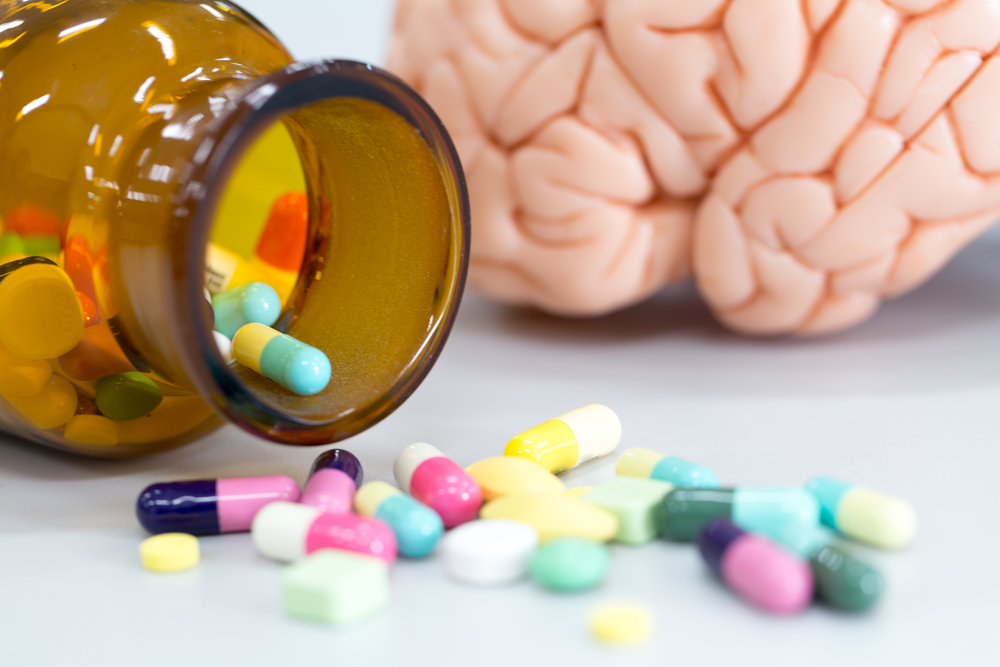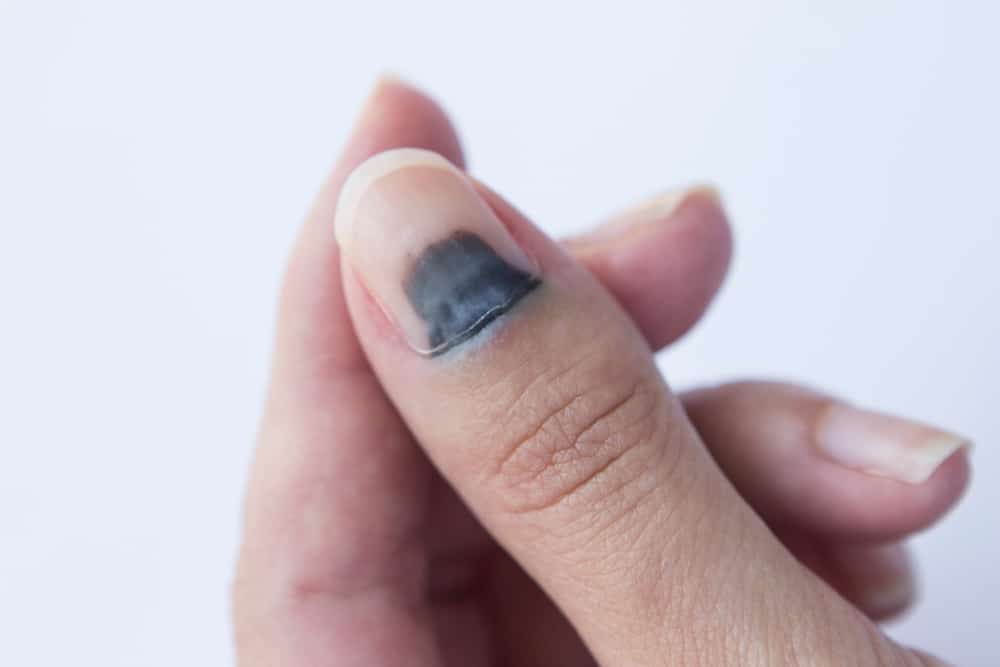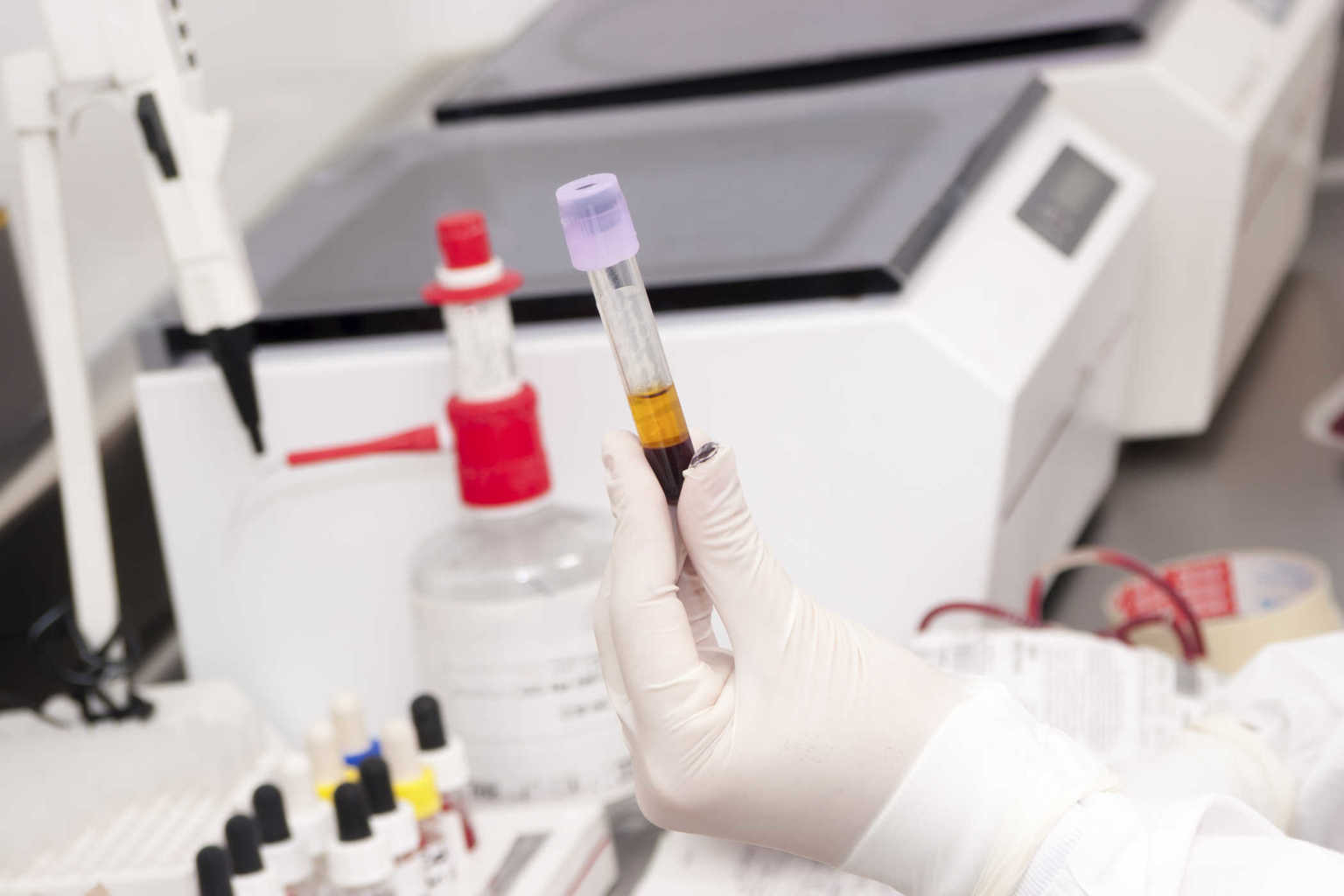Contents:
- Medical Video: How does Antidiuretic Hormone (ADH) work?
- What is antidiuretic hormone?
- When do I have to take antidiuretic hormone?
- What should I know before undergoing antidiuretic hormone?
- What should I do before I take antidiuretic hormone?
- How is the antidiuretic hormone process?
- What should I do after undergoing antidiuretic hormone?
- What do the test results mean?
Medical Video: How does Antidiuretic Hormone (ADH) work?
Definition
What is antidiuretic hormone?
Antidiuretic hormone or antidiuretic hormone (ADH) is used to diagnose and determine the cause of deficiency or excess antidiuretic hormone. However, this test is not a general test. Doctors usually diagnose a patient's condition based on clinical symptoms and other tests such as blood osmolality tests, urine osmosis and electrolyte tests.
ADH or vasopressin is produced in the hypothalamus and stored in the posterior pituitary lobe. ADH regulates the water content absorbed by the liver. Osmosis pressure in high serum or a decrease in intravascular blood volume will stimulate ADH production. Stress, surgery, or the burden of the mind can also stimulate ADH. The more ADH is produced, the more water is absorbed in the kidneys. Water will be absorbed a lot in the blood and thickens the urine. If ADH decreases, the body releases water, causing concentration in the blood and urine to dilute.
Diabetes insipidus occurs when the body does not produce enough ADH or the kidneys cannot adapt to ADH irritation. Lack of ADH secretion levels due to abnormal central nervous system (neurogenic diabetes insipidus), caused by trauma, tumors, encephalitis (swelling of the hypothalamus), or removal of the pituitary gland. Patients with diabetes insipidus release high water levels every time urination. This causes the blood to become thickened, causing the patient to feel thirsty easily.
Primary kidney disease can cause the kidneys to be less sensitive to stimuli from ADH (nephrogenic diabetes insipidus). To differentiate neurogenic diabetes insipidus and nephrogenic diabetes insipidus, doctors can hold an ADH stimulation test. In this test, patients are prohibited from drinking water and urinary osmolality will be measured before and after vasopressin is injected. If neurogenic diabetes insipidus is found, urinary osmolality with a constant water content will decrease, and urinary osmolality will increase after vasopressin is given. In the case of nephrogenic diabetes insipidus, urinary osmolality will not increase even if you reduce water content and use vasopressin. Diagnosis results can include serum ADH tests. In the case of neuropathic diabetes insipidus, ADH levels are low, while in nephrogenic diabetes insipidus, ADH levels are high.
High serum ADH levels are often associated with Syndrome of Inappropriate ADH (SIADH). Due to excessive secretion of ADH, water is absorbed too much in the kidneys compared to normal levels. This results in blood becoming runny and the urine thickening. The concentration of important ions in the blood decreases, resulting in serious abnormalities of the nerves, heart and metabolism. This syndrome of Inappropriate ADH is also often associated with lung disease (tuberculosis, pneumonia caused by infection), excessive stress (surgery or trauma), brain tumor or infection. Secretion of ADH in tumors can also cause Syndrome of Inappropriate ADH. Tumors can cause syndromes such as epithelial tumors, lungs, lymph node tumors, urinary and intestinal. Patients with hypothyroidism and Addison's can also be affected by Syndrome of Inappropriate ADH.
Doctors use this test to distinguish Syndrome from Inappropriate ADH with hyponatremia or edema. This test is also often used to measure urine osmolality and osmosis. Patients with Inappropriate ADH Syndrome cannot produce or produce only a little water intake. In addition, urinary osmolality is usually not lower than 100, and urinary or blood infiltration rates of more than 100. Patients with other causes of hyponatremia, edema and chronic kidney disease can produce 80% of water intake and urinary osmolality will not be sufficient.
When do I have to take antidiuretic hormone?
Doctors can recommend an ADH test or other tests as part of a stop drinking test or inhibition of ADH if the doctor suspects that there is a problem with the production or secretion of ADH.
In addition, this test may also be recommended if you have low sodium levels in the blood without cause, or if you have symptoms related to Syndrome of Inappropriate ADH (SIADH).
If SIADH develops unnoticed, there will be no symptoms, but if the condition is acute, some symptoms may occur:
- headache
- nauseous vomit
- dizzy
- coma or convulsions
The ADH test is done to evaluate the excess ADH caused by other medical causes, such as:
- leukemia
- lymphoma
- cancer of the lungs, pancreas, bladder and brain
- diseases that increase ADH production
- Guillain Barre Syndrome
- sclerosis
- epilepsy
- acute porphyria (inherited disorder that affects heme production, an important component of blood)
- cystic fibrosis
- emphysema
- tuberculosis
Dehydration, brain injury, and surgery can increase ADH concentration.
The ADH test can be done when the patient feels very thirsty and often urinates, to make it easier for the doctor to determine diabetes insipidus.
Patients with central diabetes insipidus (diabetes insipidus due to damage to the hypothalamus, pituitary) often feel tired because of a disturbed sleep cycle, because patients often go to the bathroom at night. Urine is usually clear, not cloudy, and the penetration rate is lower than usual.
Prevention & warning
What should I know before undergoing antidiuretic hormone?
You need to know things that can affect test results:
- if you experience dehydration, hypovolemia or excessive stress, ADH levels can increase
- if you drink too much water that can reduce serum osmolality or increase blood volume, ADH levels can decrease
- if an injection or tube from the glass is used, it can reduce the quality of ADH
- the following drugs increase ADH concentration and can cause SIADH: acetaminophen (Panadol), barbiturates, carbamazepine (anesthesia), anticholinergic agents (cholinergic treatment), cyclophosphamide (Immunosuppressive cytotoxic group treatment), some diuretics (thiazides), estrogen, opium, nicotine , oral hypoglycemic drugs (lasulfonylureas), and antidepressants three rings or antidepressants SSRIs
- drugs that have the potential to reduce ADH levels: alcohol, beta-adrenergic, anti-morphine and phenytoin
It is important that you understand the warnings above before running this test. If you have questions, consult your doctor for further information and instructions.
Process
What should I do before I take antidiuretic hormone?
- pay attention to the doctor's instructions and explanation of the test process
- make sure you drink enough water and fast for 12 hours
- your doctor will assess your stress level
- before the test, the doctor may recommend that you avoid certain medications, follow the doctor's instructions
How is the antidiuretic hormone process?
The doctor will take a blood sample when you are sitting or lying down, and store it in a plastic tube with a red lid.
The ADH blocking test is needed to measure the original serum to estimate the water content that the patient consumes. Urine is then taken in certain proportions and osmosis. Blood is taken for washing.
What should I do after undergoing antidiuretic hormone?
- after the process of taking blood, wrap it with a bandage and lightly press the blood vessels to stop the bleeding
- the doctor may freeze the serum and send it to the laboratory for further investigation
If you have questions about the process of this test, consult your doctor to understand further.
Explanation of Test Results
What do the test results mean?
Test results can vary depending on the laboratory. Consult your doctor if you have questions about the test results.
Normal results:
- HCG: 1-5 pg / mL or 1-5 ng / L (SI unit).
- ADH blocking test (drinking test).
- 65% of water is excreted for 4 hours.
- 80% of the water is excreted for 5 hours.
- Urinary permeability (in the second hour) ≤100 mmol / kg.
- Urinary / serum osmolality rate> 100.
- Urinary gravity <1,003
Abnormal results:
Increased concentration
- Syndrome of Inappropriate ADH (SIADH)
- Kidney disease is caused by diabetes insipidus
- postoperative from the first day to the third day
- serious stress like prolonged injury or pain
- blood volume decreases
- dehydration
- acute porphyrin syndrome
Decreasing concentration
- diabetes insipidus caused by the central nervous system
- surgical removal of the gland
- increased blood volume
- decreased serum osmolality
Hello Health Group does not provide medical advice, diagnosis or treatment.











